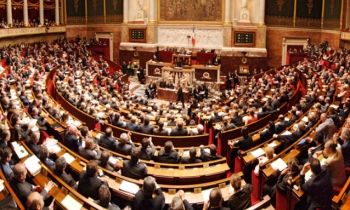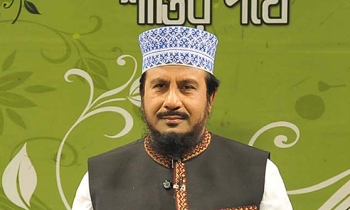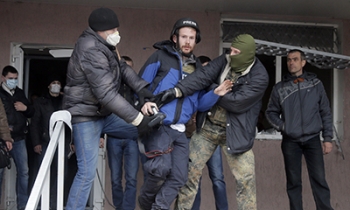Post-Radia, one famous editor has left the building (promising to come back), and the other has lost her cool. In contrast, for the political fixers and their corporate beneficiaries the Radia tapes are a minor inconvenience; not serious enough to sit up nights.
The journalists, on the other hand, are in a sorry state, without a leg to stand on. Often of their own accord, they have been grilled on the small screen, sliced and diced in print, and their every written or spoken word critically examined. True, they did nothing illegal, but they crossed that thin line in the sand.
The tainted politicians, on the other hand, looted public money and clearly broke the law. Yet, they don't believe they owe their electorate an explanation. Not for them the voluntary image slaughter that journalists submitted themselves to. And, if past record is any indication, these politicians will probably not go to jail either.
Media personalities attract more disgrace because they are intimately involved in our everyday lives in a way politicians are not. Politicians are out there, far away in the public realm, but TV anchors and star columnists are much nearer home: often in our bedrooms till late at night. They, therefore, arouse a kind of morality where impropriety weighs more heavily than breaking the law.
There are reasons why we find the public realm distasteful and unrepresentative. It not only reminds us of potholed roads, filthy hospitals and dysfunctional schools but also of officials who have profited from our misery. This is where our democracy is different from western ones. It would be unimaginable for any of us to say, as Walt Whitman did, "O, public road, you express me better than I express myself." Who in their right mind in India would ever utter a thing like that?
Our deep-seated disenchantment with public servants and elected officials was recently articulated by famous economist Jagdish Bhagwati. In the presence of our parliamentarians and our prime minister, he declared that in India, people expect politicians to be corrupt. As if that were not enough, he rubbed it in by adding: "In America, if you are caught, even God cannot help you." No doubt this is an exaggeration, but the point remains essentially valid.
As things public leave us cold, our emotions naturally turn to issues of private morality. This allows the public space to be grabbed by politicians with whom we have nothing in common. They are from another planet. They smile when they assume office and laugh all the way to the bank when they are eased out. Media personalities might feel the need to win back their consumers and fans, but the tainted politician faces no such compulsion. Clearly, the Indian electorate is not nearly as demanding.
Over time we have trained ourselves to expect less and less from public figures. This has increased our dependency on pastoral professionals, ranging from journalists to NGO activists. The kind of adulation and awe such people elicit in India would be extremely rare in western societies.
On account of the unwritten nature of his pastoral responsibilities, a journalist is never seen advertising soap or toothpaste or woollen suiting. It is acceptable for a Shah Rukh Khan or a Sachin Tendulkar to endorse a product, but not a TV anchor or a newspaper editor. They might be famous names and faces, but they disappear during commercials and are never seen hawking goods. So when editors behave like influence peddlers, there is an image muddle. Why don't they become full-time lobbyists and politicians instead?
A journalist, like a soldier, judge or priest, belongs to a pastoral profession because he is supposed to put the collective, the flock, before private gain. But of the lot, it is easiest to be a journalist, both in terms of qualifications and the level of sacrifice required. Yet, quite unlike others in pastoral occupations, a few journalists get paid like corporate bosses. Consequently, for media stars, fans come with envious stalkers. This makes them unique among pastoral professionals.
Just as human beings naturally seek a cultural identity, or even identities, they also crave collective life. While economic marginalisation and perceived deprivation can lead to angry identity claims, disaffection with the public sphere can prompt excessive dependence on pastoral professions. Thus, if journalists and NGOs are lionised at one end, they are open to greater scrutiny at the other.
The media star may have a certain celebrity status, but is not quite the movie idol either. While film actors apparently go to bed with their wigs and make-up on, a journalist is seen as a serious and caring person. People might want their autographs and even be photographed with them, yet it is not the same as hankering after a Bollywood hero.
It is the pastoral character of journalism that constrains its best-paid representatives from behaving like either political heavies or business tycoons. When they ignore this difference, they run the risk of popular disapproval which can sometimes be more hurtful than a legal sentence. While the politician can return in another ministry under a new dispensation, it is hard to repair the damage done to a pastoral reputation.
This is especially true in India where fans matter more than electorates.
The writer is former professor, JNU.









